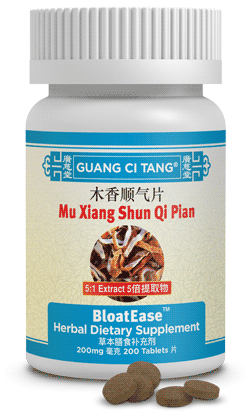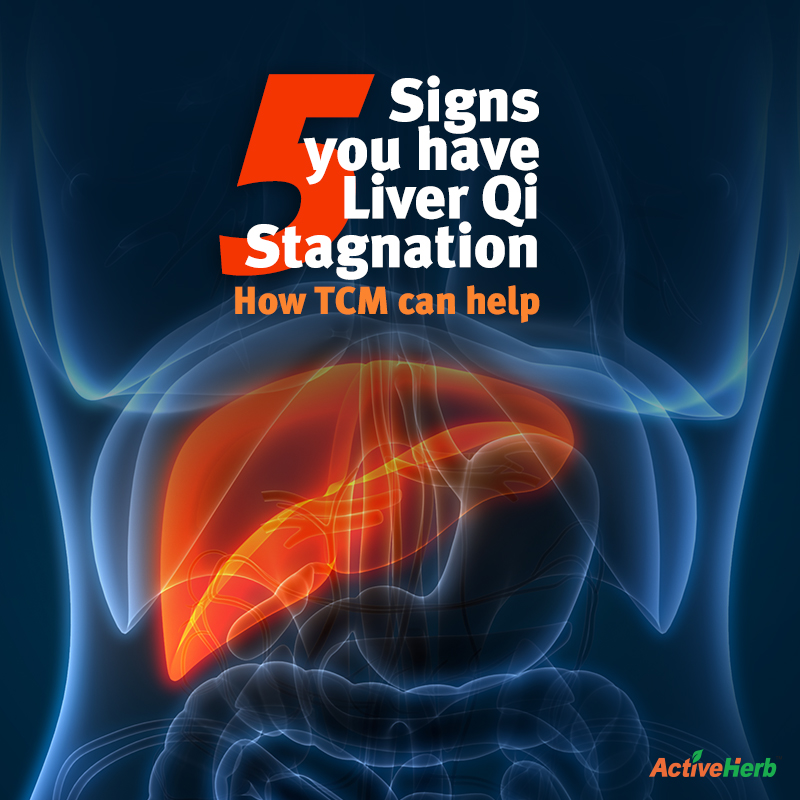Mu Xiang: This Legendary Herb Banishes Embarrassing Gas

You’re eating right. You’re exercising. You’ve sworn off dairy, wheat and beer. But the gods of digestion still aren’t smiling on you. After almost every meal you eat, your belly expands, food sits like a rock and you’ve got stinky gas. What gives? And what can be done about it?
Thankfully, Traditional Chinese Medicine (TCM) offers a solution in the form of one of the most legendary herbs for supporting digestion. And it’s one you’ve probably not heard of.
Mu Xiang (Aucklandia Root) is such a well-regarded, time-testing Chinese herb that a namesake formula was created with it: BloatEase (Mu Xiang Shun Qi Pian).
What Does Mu Xiang (Aucklandia Root) Do in TCM?
What do you think is the primary cause of excessive, foul-smelling gas and brick belly? Is it the Standard American Diet (SAD), which has to go down in history as one of the most appropriate nicknames of all time. Overfed and malnourished is how the modern Western diet can be described—an overconsumption of calories with insufficient nutrition. The ubiquity of white flour and ultra-processed food, heavily-laden with salt and sugar is without doubt culpable.
But it’s not like ancient, traditional societies never suffered from malodorous flatulence and balloon bellies. For thousands of years, people have been making poor dietary choices. Rather than sticking to, say, steamed dumplings with vegetables, the ancient Chinese ruling class sometimes overindulged in fried pork. (“Man, I shouldn’t have had that fourth serving of Mu Shu pork!”)
Mu Xiang goes by a few different English names: Aucklandia Root, Costus Root and Saussurea. Whatever you call it, Mu Xiang belongs to the class of Chinese herbs that regulate Qi. Specifically, Mu Xiang regulates Qi in the meridians that are heavily involved in the digestion process: Gallbladder, Large Intestine, Spleen and Stomach.
In the west, many people believe that the stomach is the most critical for proper digestion. But according to traditional Chinese medicine theory, the Spleen is the king of digestion. The Spleen of TCM is not the same as the western organ. (Spleen in TCM includes not just the physical organ but several energy points along the meridian.)
Mu Xiang is one of the best Chinese herbs for giving Spleen the tender-loving’ care it needs to optimize digestion.
How Does Mu Xiang Work?
From a Western medicine perspective, Mu Xiang enhances digestion by increasing gastric emptying and improving motility in the GI tract.
As for how it works according to TCM theory, you don’t need to be a licensed acupuncturist to realize that if Qi in the digestive organs is stuck, smelly gas may occur.
Mu Xiang moves Qi along in the paired Spleen/Stomach channel. The herb also has a positive effect on the Liver/Gallbladder channel to alleviate that balloon-like feeling in the gut.
In addition, Mu Xiang also regulates Qi in the intestines, which may help prevent messy cleanups in the toilet.
But by and large, it’s Mu Xiang’s actions on the Spleen that are arguably the most helpful. Mu Xiang enhances Spleen function so that the organ system reaches its full potential in extracting Qi from the food you eat. For this reason, the Journal of Ethnopharmacology, in a December 2020 review, noted Aucklandia root’s positive potential for supporting digestive function.
Fun Facts About Mu Xiang
Related to the thistle family of plants, Mu Xiang isn’t only used in TCM. Other traditions of the Orient and Middle East have used the plant medicinally for centuries, including the Tibetan and Ayurvedic systems of medicine.
Modern research demonstrates another way in which Mu Xiang supports digestion. A 2012 study published in the Journal of Immunopharmacology concluded that Mu Xiang contains phytochemicals that suppress the so-called COX enzyme, the same enzyme that NSAIDs like ibuprofen target.
Rare Aucklandia Root
The article from Journal of Ethnopharmacology also mentioned a critical fact that Mu Xiang is an endangered medicinal plant. It only grows at altitudes of over 12,000 feet in the Himalayas. This makes the availability of the herb scarce enough. Add to that the popularity of the herb in TCM and the fact that it’s immensely popular in Hindu ceremonies in India, where it’s used in devotion rites to honor the goddess, Nanda Devi. It’s easy to see why demand and cost have skyrocketed.
Mu Xiang is included in the Appendix of the Convention on International Trade in Endangered Species (CITES). Thus, the availability of Mu Xiang in the USA is very limited. In order to honor the herb’s delicate balance in nature while respecting rules on collecting and regulation, ActiveHerb obtained a special permit that complies with CITES regulations to ensure the viability of the herb in its natural environment.
Conclusion
The Chinese herb Mu Xiang might not be a household name in the US. But it’s becoming more increasingly known by those looking for natural help with unpleasant gas or brick belly. If your digestive system could use a tune-up, consider drinking Mu Xiang instant tea or taking the formula, Mu Xiang Shun Qi Pian, aka BloatEase.







